In 'Stealing Fire' by Steven Kotler, readers are taken on a profound journey exploring how Silicon Valley innovators, Navy SEALs, and visionary scientists are reshaping our understanding of human potential and performance. Through captivating storytelling, Kotler delves into the worlds of peak performance, altered states of consciousness, and the pursuit of ecstasis, offering insights on how these realms intersect to drive creativity and productivity in our lives and workplaces. By shedding light on cutting-edge techniques and technologies, the book challenges conventional thinking and inspires readers to tap into their untapped capabilities. 'Stealing Fire' is a compelling exploration of the frontiers of human achievement and a testament to the power of pushing boundaries.
About Steven Kotler
Steven Kotler is an esteemed author known for his works exploring human potential, disruptive technology, and the intersection of science and culture. With a background in journalism and psychology, Kotler has a unique perspective that he brings to his writing. He co-founded the Flow Genome Project, a research organization focused on decoding the science of flow states and peak performance. Kotler's notable works include 'The Rise of Superman', 'Bold', and 'Stealing Fire', which have collectively shaped conversations around innovation, creativity, and human achievement. Through his writings, Kotler has made a significant impact on literature by inspiring readers to push their boundaries and reach their full potential.
About Jamie Wheal
Jamie Wheal is a performance expert, author, and founder of the Flow Genome Project, an organization dedicated to optimizing human performance through science and adventure. He co-authored Stealing Fire with Steven Kotler, which explores how elite performers—from Silicon Valley executives to Navy SEALs—use altered states of consciousness to achieve breakthrough success. Wheal’s work blends neuroscience, psychology, and cultural history to examine how humans can achieve flow states, creativity, and transformative experiences. His solo work, Recapture the Rapture, continues this exploration with a focus on meaning-making in a rapidly changing world, offering frameworks for deep connection and self-transcendence.
Other Books by Steven Kotler, Jamie Wheal
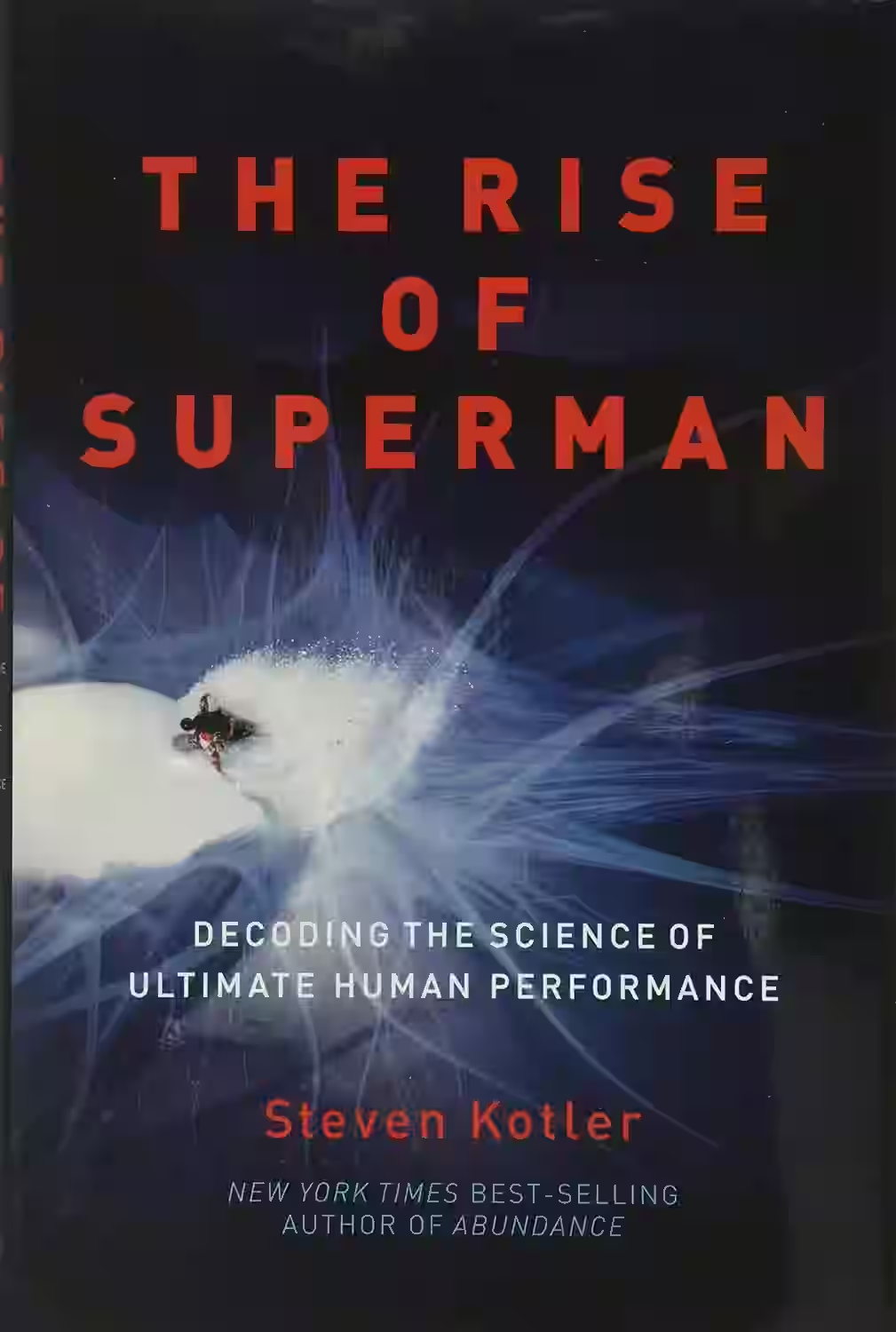
The Rise of Superman
In 'The Rise of Superman' by Steven Kotler, readers are taken on a thrilling exploration of the concept of flow, a state of peak performance where individuals achieve superhuman feats. Kotler delves into the neurobiology behind this phenomenon, drawing on extreme sports and other high-risk activities to demonstrate how flow can lead to extraordinary accomplishments. Through gripping storytelling and insightful analysis, the book not only entertains but also offers practical ways to harness flow in everyday life. Kotler's research and interviews with top athletes provide a fascinating look at the potential of the human mind and body. 'The Rise of Superman' is a compelling read that challenges conventional thinking about human limits and inspires readers to push beyond their boundaries.
Similar Books
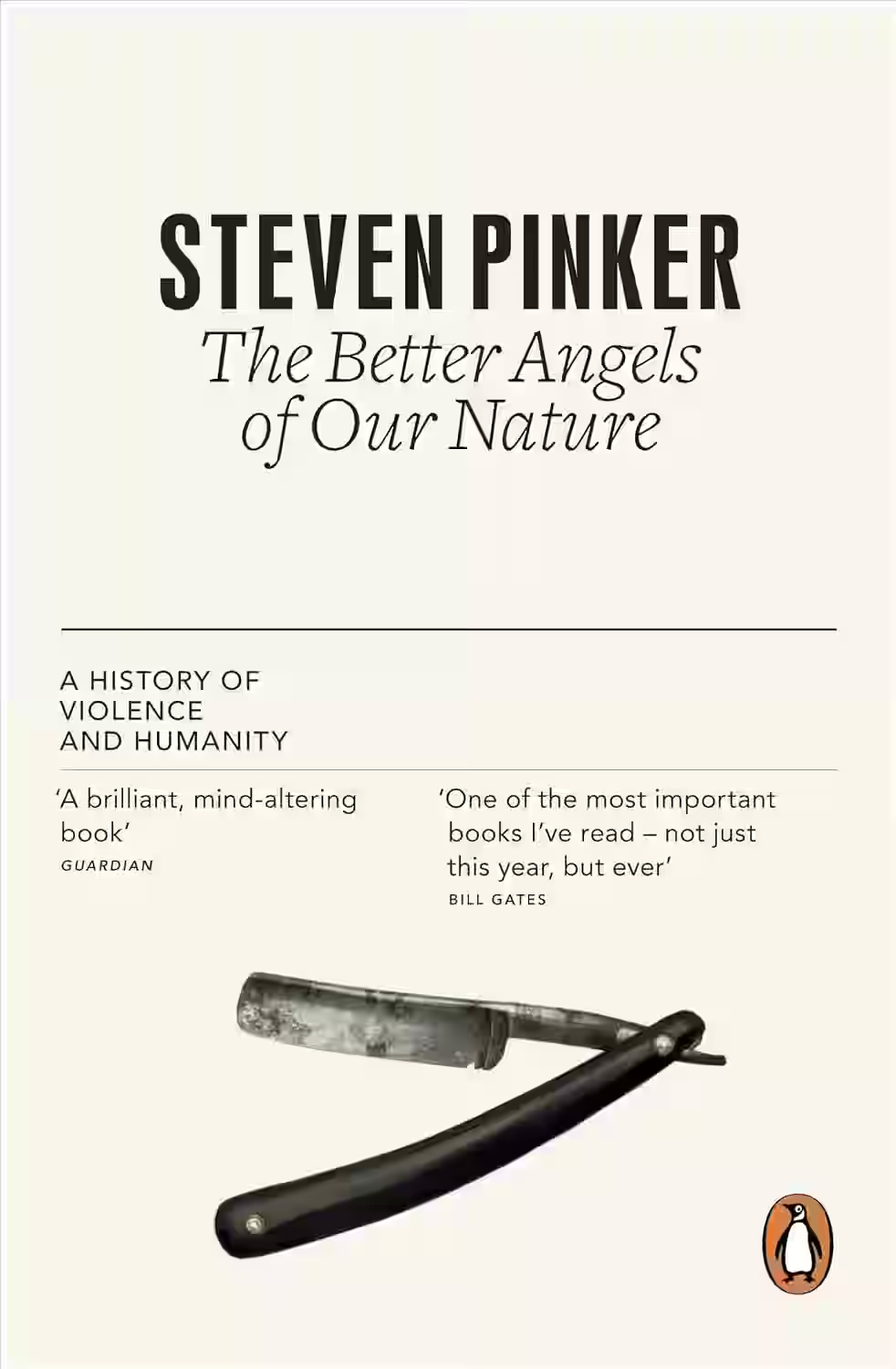
The Better Angels of Our Nature
In The Better Angels of Our Nature, cognitive scientist Steven Pinker argues that, contrary to popular belief, violence has declined significantly over human history. Drawing on data from psychology, history, and political science, Pinker examines how societal changes—such as the spread of literacy, trade, and centralized governance—have contributed to a more peaceful world. He identifies forces like empathy, reason, and moral progress as "better angels" guiding human behavior. Though controversial, the book provides a compelling, data-driven narrative that challenges pessimistic views of human nature and makes a bold case for the progress of civilization over the centuries.
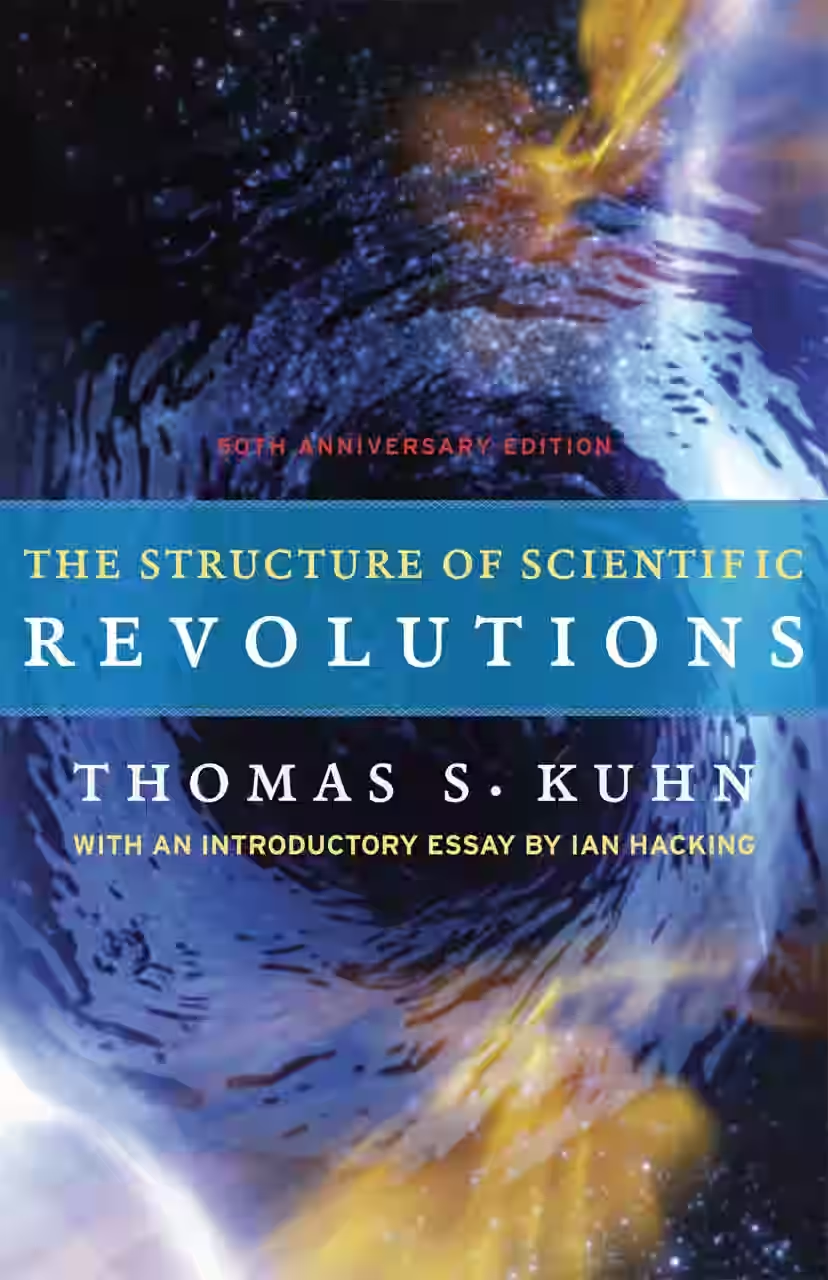
The Structure of Scientific Revolutions
Kuhn’s seminal work revolutionized how we understand science. He argues that scientific progress doesn’t occur gradually, but through paradigm shifts—periods of radical change in fundamental frameworks. Normal science operates within accepted paradigms until anomalies accumulate, prompting a crisis and eventual revolution. Kuhn uses historical case studies to illustrate this cycle, challenging the belief in linear scientific advancement. First published in 1962, The Structure of Scientific Revolutions has had a lasting impact on the philosophy of science, influencing fields from sociology to history. It remains essential reading for anyone seeking to understand how scientific knowledge evolves.
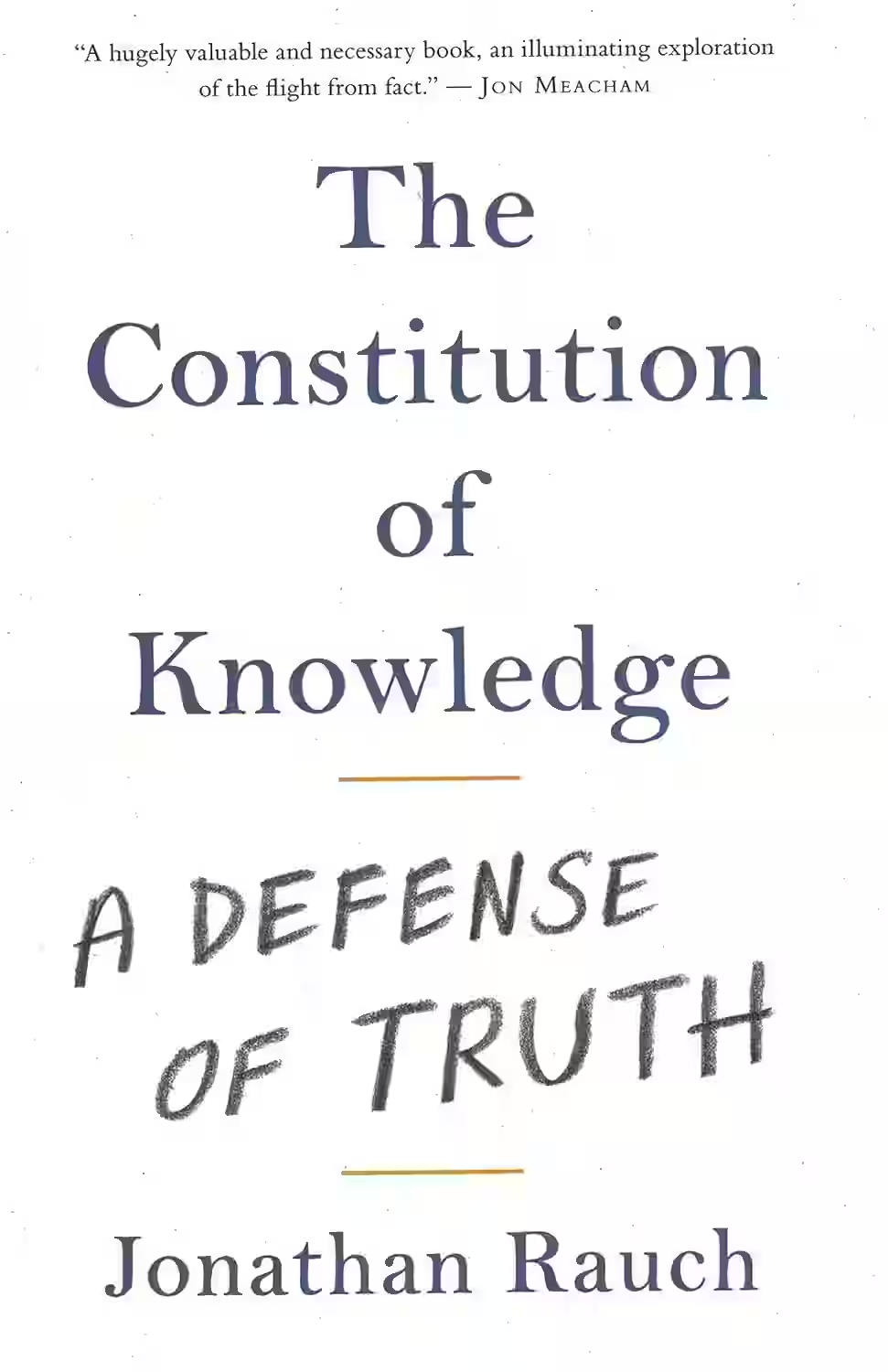
The Constitution of Knowledge
In The Constitution of Knowledge, Jonathan Rauch defends the epistemic institutions—science, journalism, academia—that uphold truth in democratic societies. He explores how norms like open debate, peer review, and fact-checking serve as a “constitution” governing the marketplace of ideas. Amid rising disinformation and tribal polarization, Rauch argues for preserving this knowledge system through free speech, tolerance, and intellectual humility. Blending political philosophy, history, and media studies, the book is both a defense and a roadmap for safeguarding truth in a digital age. It's an essential read for anyone concerned about democracy, truth, and the future of civil discourse.
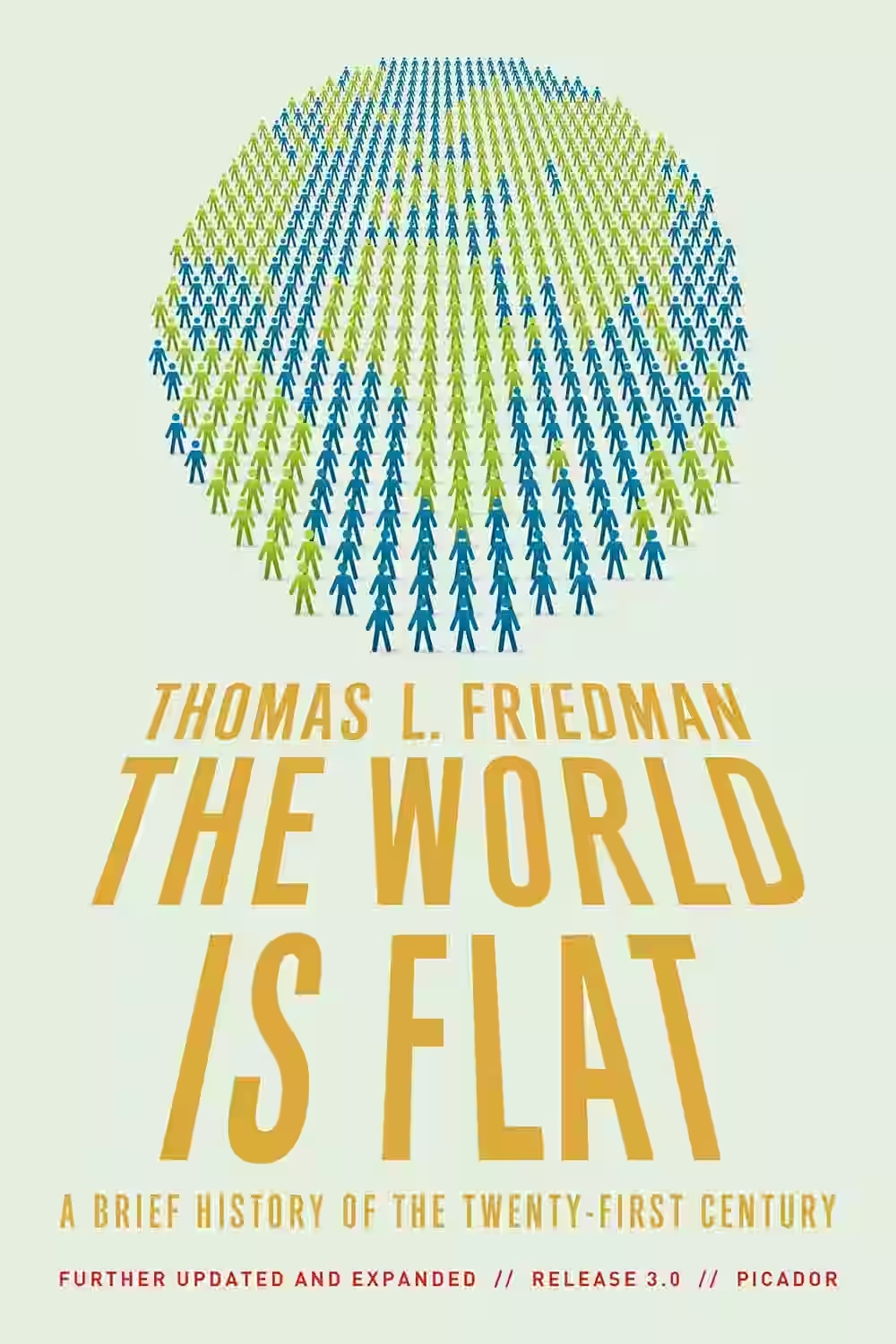
The World Is Flat
In 'The World Is Flat,' Thomas L. Friedman explores the concept of globalization and its impact on our interconnected world. He delves into how technological advancements, particularly the rise of the internet, have leveled the playing field for individuals and businesses worldwide, creating both opportunities and challenges. Friedman argues that in this 'flat' world, countries and individuals must adapt to stay competitive. Through engaging anecdotes and analysis, the author paints a vivid picture of a world where traditional boundaries are becoming increasingly blurred. This thought-provoking book challenges readers to rethink their place in a globalized society.